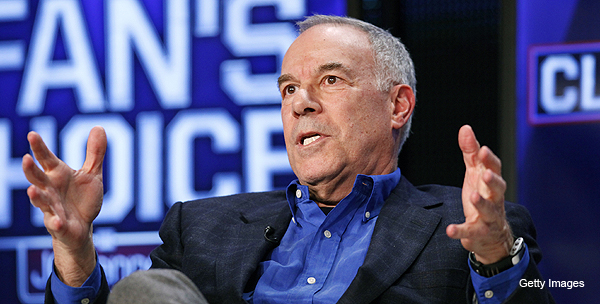 |
| Earl's sister: Pearl the Squirrel |
Earl is neck deep in sports magazines, preparing for his 2013 NFL Fantasy Football drafts. This leaves me, his sister, Pearl, with the onerous task of analyzing the two most significant recent verse-related lists: Earl's "Ten Most Influential People in Poetry Today" and Seth Abramson's "The Top 200 Advocates for American Poetry (2013)", posted here and to the Huffington Post, respectively, on the same day. Quite a coincidence: Seth authored one article and was mentioned in the other!
There may never be two lists on the same topic (i.e. poetry, in this case) that have less in common, reflecting in sharp focus the contrast between the established Print and the emerging Pixel worlds. The key is the explicit stipulation in "The 10" presupposing that poetry would succeed in finding a public audience before 2030. Seth's article shows no interest in poetry's repopularization. Rather, "The Top 200" concentrates on practical, professional considerations, the realpolitik of indifference. As always, Mr. Abramson speaks eloquently for the academic/PoBiz (the "AcaPoBiz"?) group aesthetic.
 |
| Seth Abramson |
 |
| Earl the Squirrel's Rule #37 |
The Top 200 list could only be written by and for people untouched by the modern cyberzeitgeist. This was evident in the first phrase of the introduction:
"With more than 75,000 poets in the United States alone..."
Ahem. Let me put this in perspective, using one of my brother's favorite examples. Francis Ford Coppola--you know, the one who gave us "Patton" and "The Godfather"--launched Zoetrope on June 21, 2000. It began as a critical forum for screenwriters but soon branched out to embrace playwrights, novelists and poetry writers. Over time, poets--most of them American--have dominated the membership, traffic and contributions. Of the online poetry subforums that have survived for all or most of the last decade Zoetrope is, by far, the most obscure. Most onliners either don't know what it is or refer to it dismissively as "Zoetripe".¹
Zoetrope alone has more than 75,000 American poets as members.
How many American poets are there in total? It's hard to say but, extrapolating from online, slam and other contest participation, one million American poets would seem an extremely conservative estimate. Earl's best guess is that 2,000,000 Americans consider themselves poets, serious or not. Does that sound like a lot to you? Well, it's about .5% of the total U.S. demographic. That may be the all-time high those using raw numbers boast about but, as a percentage, it might also be a historic low in any human population.
 |
| Earl the Squirrel's Rule #43 |
If none of the ten favorite contemporary poets you wrote down earlier are from foreign shores your chances of being a Page rather than a Pixel poet skyrocket.
For the most part, the Top 200 was a list of underrated poets, many of them unfamiliar even to others in the Print World. This is a reflection of that milieu's segmentation; one doesn't produce iconic efforts by selling 200 copies of a book or by publishing in poetry magazines with, at the very most, 30,000 subscribers. By contrast, Earl restricted himself to people well known to everyone within the established Internet community.
All of this said, "The 200" is also remarkably expansive. In addition to poets and publishers, it includes, as one cynical Kris Kristoffson fan commented, "songwriters, politicians, activists, organizers, scholars, essayists, critics, one troll, two semiliterates, 'an electric eye, two big dogs and a minefield'".
No one is surprised by the aesthetic bias. By my count, only one Nemerov winner or judge was listed in the 200. Even multiple winners who have spent decades in open fora providing free expert critique to developing poets were overlooked. By contrast, the Top 10ers, including the late Steve Sabol, all understood basic verse technique and its value.
Speaking of Mr. Sabol, there is a parallel between the NFL and the poetry worlds. Playing the AcaPoBiz role is the players' union: The National Football League Players Association ("NFLPA"). Unlike a guild, it concentrates on its members' welfare without regard to performance. Criticism of other members is actively discouraged. Both the league and Players Association have a conduct code and rules encouraging uniformity--literally!--and respect when appearing in the public eye (i.e. playing onfield or being interviewed).
The more purist onliners are like the NFL Network, a television channel that grew out of Steve Sabol's NFL Films (which is similar to Stage poets, dealing with the more dramatic and amusing). The NFL Network unabashedly promotes football as its raison d'être, often featuring technical discussions (something never found in literary periodicals anymore), form[ation]s, crowd-pleasing² highlights, humor, news, drama, and, of all things, poetry!
Mr. Abramson has provided us a useful directory of those whose influence has brought U.S. poetry to where it is today. Whether this is to their credit or not is another question entirely. It is time again for me to quote Kristofferson:
"Who's to bless and who's to blame?"
Footnotes:
¹ - To be fair, Zoetrope poets have created no less than two of the top 10 poems of this century: "There are Sunflowers in Italy" by Didi Menendez and "Specimen #31, Adult Female" by Sharon Hurlbut.
² - As opposed to performances of interest only to other participants.
Your feedback is appreciated!
Please take a moment to comment or ask questions below or, failing that, mark the post as "funny", "interesting", "silly" or "dull". Also, feel free to expand this conversation by linking to it on Twitter or Facebook. Please let us know if you've included us on your blogroll so that we can reciprocate.
If you would like to contact us confidentially or blog here as "Gray for a Day" please use the box below, marking your post as "Private" and including your email address; the moderator will bring your post to our attention and prevent it from appearing publicly.
We look forward to hearing from you.



